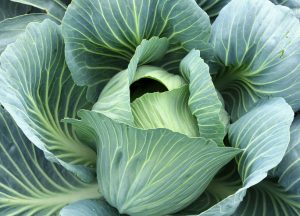
The growing interest toward organic produce has increased the interest and the demand for organic fertilizers as well. While in terms of efficiency, many natural fertilizers offer the same increase in yield as synthetic substances, going organic has lots of important benefits over man-made chemicals used for adding nutrients to soil – here are some of the most important ones.
Improved Soil Structure
When added to the soil, organic fertilizers start releasing their nutrient content slowly, providing the plant exactly the amount of nutrients that it needs, but feeding the plants is not the only thing done by organic fertilizers. During the decomposition process, natural fertilizers break down into minerals and other elements absorbed by the plants and into fiber and other hard components that stay in the soil and improve its ability to retain water.
A Favorable Environment for Healthy Microbes
Rich, healthy soil is home to various microorganisms that are essential for making nutrients available for plants and that can thrive only in the presence of carbon. Most synthetic fertilizers do not add carbon to the soil, which means that they disrupt the balance that allows the microorganisms to proliferate and to do their job, while carbon is part of the chemical make-up of any organic lawn fertilizer.
A Sustainable and Environment-Friendly Way to Feed Plants
Organic fertilizers are made from all-natural materials, usually organic waste, including poultry waste and other by-products of animal husbandry. Using natural fertilizers is an excellent way to make the most of material that is already there, produced by animals on a daily basis in large quantities and it is also a fertilization method that reuses natural materials. The process makes sure that no toxic chemicals build up in the soil over time and no greenhouse gases are generated during the decomposition, which also means natural fertilizers can be used over prolonged periods without any concern.
Natural fertilizers release their nutrients slowly and steadily, which means that they do not pose the risk of damage potentially caused to the plant’s roots and leaves by overfertilization.
Making Your Own Natural Fertilizer
Organic fertilizers can be bought, but you can also make your own easily. As the raw material used for making organic fertilizers is organic waste, you can easily make your own fertilizer by collecting the organic waste produced in your household into a large bin. Vegetable and fruit peels and cores, egg shells and other types of organic matter are all great for making compost, the ultimate natural fertilizer. The material needs to be collected in a bin and will need to be watered and turned over from time to time. There is one thing, one aspect that makes the usage of self-made organic fertilizer somewhat more complicated than the usage of synthetic fertilizers: it may take up to a year to obtain your own, free, high-quality fertilizer. However, you can also speed up the process to a certain extent, by adding worms to your compost bin – they will break down the organic matter faster than it would break down on its own.